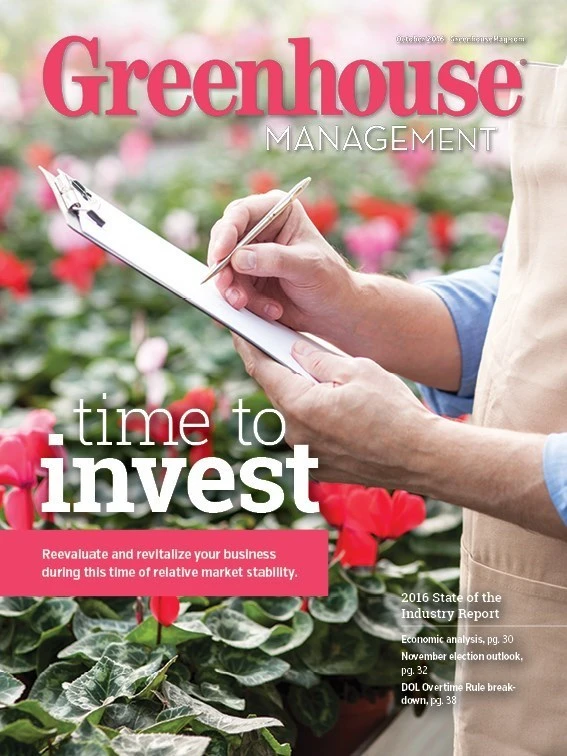

The economy has largely improved since the recession of the late 2000s ended. People are spending more money than they have in the past few years and America’s 5-percent unemployment rate is the lowest since 1973.
That, however, doesn’t mean that everything is perfect. The economy is always changing, and even when things are good, it’s smart for growers to plan ahead for what’s to come.
To get the pulse of where the current state of the economy, where it’s headed and how growers should approach the market, we spoke to Marco Palma, a Texas A&M University associate professor and extension economist, to get his expert opinion.
Greenhouse Management: Generally speaking, what kind of shape is the economy in right now?
Marco Palma: We are going at a very steady pace if you look at any indicators, especially the ones pertaining to the green industry. I think that the economy is in a very stable condition. You see a little bit of growth. It’s not very big, but at least it’s positive.
We are projecting an increase in plant purchases for the next three or four years up until 2020, and are projecting a small — but nevertheless positive — increase in equipment and tools purchases. This is important because we wanted to make a projection on personal consumptions and who is making their own garden.
The big unknown in the environment is what is going to happen after November with the new president and how the changes will affect the economy and the green industry in general.
GM: What are some of the issues that growers should pay attention to in the short and long term?
MP: Labor is currently an issue being heavily debated, and because this is an industry that is heavily dependent on labor and labor availability, that makes sense. Over the past 15 years, we have had issues not only with the availability of labor, but also with the cost of labor. Legal, seasonal and temporary workers have played a big role — especially of late. And in the industry, there have been concerted efforts by groups to increase the allotment of these slots. If there weren’t these issues, we wouldn’t have to look for labor somewhere else. Whatever happens with this discussion over the next few years will probably affect the industry.
26 percent of growers say financial limitations have caused them to limit new hires in the past 12 months.
Source: 2016 State of the Industry Report
Long term, we probably have to start thinking about bettering some of the processes to improve labor use and become more efficient. But as the election nears, I think you’ll be able to pinpoint more issues that are relevant to the green industry. [The presidential candidates] are especially important, too, as they’ll decide what the best course of action is.
GM: What are some of the economic aspects growers should be researching the election and during the beginning of 2017?
MP: If you a look at all of the economic indicators, they point to a steady economy for the next few years. People might be thinking about whether this is a time where they should expand or whether there should be added infrastructure from investments, whether those are related to machinery or different infrastructure or capital investments of any sort.
The first thing [growers] need to look at after the election is if the economy keeps [growing] at the same pace as it is now. If it is, and we see the steady growth and see oil prices remain where they’ve been the past few years, I think it’s safe to say that the economy is growing at around the same pace. It would be a key period for people to see if they want to make investments or not. And if the economy continues at this pace, it might [some] time before we see a drop. And it might be a good time for people to consider these big infrastructure investments and try to make more efficient uses of their resources, to try and leverage their capital and try to reduce some of their current costs.
This interview was edited for style, length and clarity.

Explore the October 2016 Issue
Check out more from this issue and find your next story to read.
Latest from Greenhouse Management
- Anthura acquires Bromelia assets from Corn. Bak in Netherlands
- Top 10 stories for National Poinsettia Day
- Langendoen Mechanical hosts open house to showcase new greenhouse build
- Conor Foy joins EHR's national sales team
- Pantone announces its 2026 Color of the Year
- Syngenta granted federal registration for Trefinti nematicide/fungicide in ornamental market
- A legacy of influence
- HILA 2025 video highlights: John Gaydos of Proven Winners





